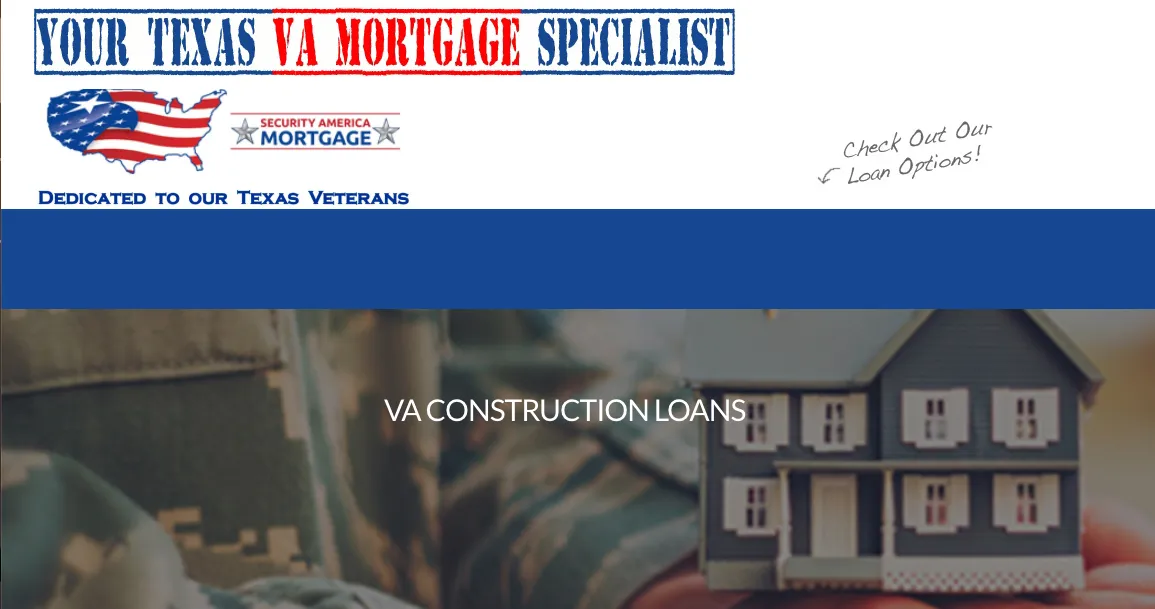Building a Smart Home with a VA Construction Loan: Is It Possible?
In today’s world, technology plays an increasingly significant role in how we live, and the concept of a “smart home” is no longer a futuristic dream it’s an achievable goal for many homeowners. If you’re a military veteran or active-duty service member dreaming of building a modern, tech-savvy home, you might be wondering: Can you build a smart home with a VA construction loan?
The answer is yes. However, understanding how the VA construction loan works and how it aligns with smart home technologies is crucial for making your vision a reality.
What Is a VA Construction Loan?
A VA construction loan is a special type of loan backed by the U.S. Department of Veterans Affairs, designed to help eligible veterans and active-duty service members finance the construction of a new home. Unlike traditional VA loans, which are typically used for purchasing existing homes, VA construction loans are used from the ground up starting with buying land and covering all construction costs.
Some of the main benefits of a VA construction loan include:
These advantages make VA construction loans an attractive option for those looking to build custom homes including smart homes.
What Is a Smart Home?
A smart home is a house equipped with automated systems and connected devices that can be remotely controlled. These can include:
The goal of a smart home is to enhance convenience, improve energy efficiency, and provide better security all of which are beneficial for homeowners, especially veterans who may value added comfort and accessibility.
Can You Use a VA Construction Loan to Build a Smart Home?
Yes, you can build a smart home using a VA construction loan, provided that the features you include meet VA construction standards. The VA doesn’t restrict what kind of technology you incorporate, as long as the home is:
As long as the smart features (like smart lighting, thermostats, or security systems) are part of the original construction plan and approved by your builder and lender, they can typically be included in the loan.
Important Considerations
While building a smart home with a VA loan is possible, there are several key points to keep in mind:
1. Work with a VA-Approved Builder
You must select a VA-approved builder for your smart home construction. If your preferred builder isn’t approved, they will need to go through the VA registration process before your loan can be approved.
2. Choose a VA-Experienced Lender
Not all VA lenders offer construction loans. Make sure you work with a lender who is familiar with VA construction loan requirements and is open to including smart home technologies in the build.
3. Upfront Planning is Essential
When building a smart home, planning ahead is vital. All smart features should be listed in the original construction budget and plans submitted for VA approval. Mid-construction changes can be costly and may not be covered.
4. Permits and Inspections
All construction, including smart installations, must comply with local and federal building codes. Smart features like wiring, security systems, or connected HVAC must pass inspections to ensure safety and compliance.
5. Budget Carefully
Although VA loans cover the full construction cost (often with no down payment), you’ll need to ensure your smart home tech fits within the appraised value of the property. Over-customization with luxury smart tech could exceed what the VA considers reasonable.
Benefits of Building a Smart Home with a VA Construction Loan
Building a smart home as a veteran using a VA loan comes with several unique advantages:
1. Long-Term Energy Savings
Smart homes are often more energy-efficient. Smart thermostats, lighting, and appliances help reduce energy usage, lowering utility bills in the long run a great benefit for veterans on a fixed income.
2. Enhanced Accessibility
Smart homes can make life easier for disabled or aging veterans. Features like voice-controlled lighting, automated door openers, or surveillance systems provide greater independence and security.
3. Improved Resale Value
As technology becomes more integrated into daily life, homes equipped with smart features tend to have a higher resale value and appeal to modern buyers.
4. Security and Peace of Mind
Smart security systems provide real-time alerts and remote monitoring, allowing veterans and their families to feel safer and more in control of their environment.
Common Smart Features to Include
Here are some popular smart home features you can consider integrating during construction:
Final Thoughts: Is It Worth It?
Building a smart home with a VA construction loan is not only possible but also practical. With proper planning, the right builder, and an experienced lender, you can integrate cutting-edge technology into your custom-built home without sacrificing the benefits of your VA entitlement.
Whether you’re looking for energy efficiency, enhanced security, or just the convenience of a modern lifestyle, a smart home built through a VA construction loan can meet your needs while honoring your service. It’s a future-forward investment in comfort, safety, and value.
